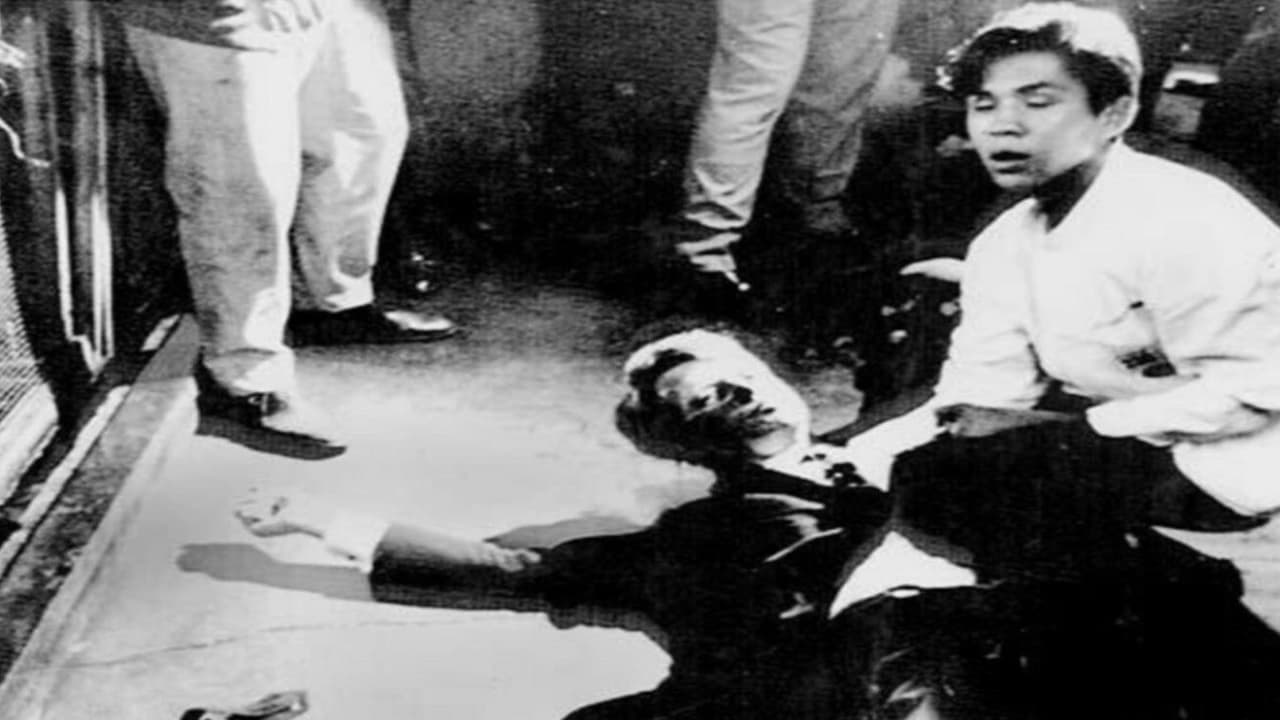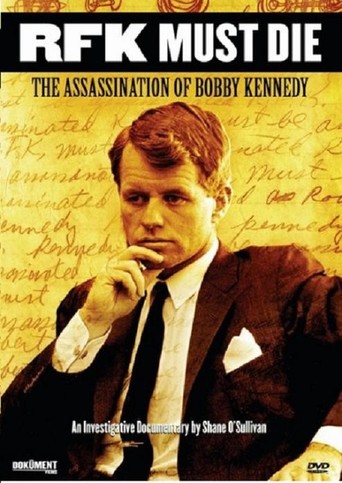Bessie Smyth
Great story, amazing characters, superb action, enthralling cinematography. Yes, this is something I am glad I spent money on.
Howard Schumann
Speculation about the 1968 assassination of Senator Robert F. Kennedy is fueled by the new documentary RFK Must Die: The Assassination of Bobby Kennedy by Shane O'Sullivan, an independent researcher. The film is an expansion of a BBC broadcast in 2006 by Mr. Sullivan attempting to prove that CIA operatives were present at the Ambassador the night of the assassination and may have been involved in the events that took place that horrible night. Sullivan believes that the CIA targeted Kennedy because of his role in the Bay of Pigs invasion, his pledge to end the War in Vietnam, and his vow to reopen the investigation into the murder of his brother if he became President.Though Sirhan Sirhan was arrested, tried, and convicted for the RFK killing and is now serving a life sentence for murder, he still maintains that he has no recollection of the shooting and his easy susceptibility to hypnosis has led to speculation that he may have been a programmed "Manchurian Candidate". Additionally, other tantalizing facts have emerged that raise questions as to whether or not others may have been involved in the shooting. Seven bullets were removed from bodies, an eighth bullet was traced through two ceilings, and two more bullets (labeled as such on FBI photographs) were identified as lodged in the door frame of the pantry by both LAPD and FBI personnel, yet Sirhan's gun could hold only eight bullets. Astonishingly, these door frames and ceiling tiles containing bullet holes were destroyed by the LAPD shortly before the trial of Sirhan Sirhan along with 2,410 photographs taken during the investigation.This information is doubly disturbing fact in light of the subsequent coroners report that declared that all three of the bullets striking Kennedy entered from the rear and no more than one to three inches from Kennedy's ear (Sirhan was estimated to be between three to six feet in front of the Senator). The three senior CIA officials identified in the film are David Morales, Gordon Campbell, and George Joannides and two of them can be seen moving away from the hotel pantry shortly after the shooting. Morales was known to be a violent and ruthless man with an explosive temper. He was involved in the capture and killing of Ché Guevara and had boasted to friends after both Kennedy brothers had been killed, "I was in Dallas when we got the son of a bitch and I was in Los Angeles when we got the little bastard." O'Sullivan talked to Bradley Ayers, a retired Army officer who had been stationed at JM-Wave, the CIA's base operation in Miami and had trained Cuban exiles together with Morales. Ayers identified Morales and Campbell with what he described as 95% accuracy as being in the ballroom the night Kennedy was shot. Although several identified Morales from the photos including two very respectable witnesses: Wayne Smith and Ed Lopez, the evidence presented is conflicting. Some who knew Morales say that it is not him and from the evidence shown, to me the case is less than compelling. The identification of Campbell is also questionable though some who have seen CIA photographs of Campbell say that the man in the footage resembles him, but they are uncertain.What cannot be argued, however, is that there are several very officious looking individuals present who are obviously not enjoying themselves and look as if they definitely do not belong there. O'Sullivan says that the CIA owes an explanation to the public about the reason the men were present. They were definitely not secret service agents and if they are who O'Sullivan says they are, the mystery deepens. While the photographic evidence presented is inconclusive, RFK Must Die is an important film that raises many questions and should be seen, if for no other reason than to listen to an "interview" by Hank Hernandez, an LAPD officer who had previously worked for the CIA.The person being interrogated is Susan Serrano, a young Mexican-American who claimed she had seen two people including a girl with a polka dot dress leave the pantry from a rear balcony shouting, "We killed him, we killed him". She is told repeatedly by Hernandez that she did not see what she claims and he tells her in an intimidating manner to change her story. For those saturated with official government cover-ups, it is still a frightening revelation. For a new generation too young to remember 1968 and too idealistic to think the worst about government complicity, it may be an eye opener.

